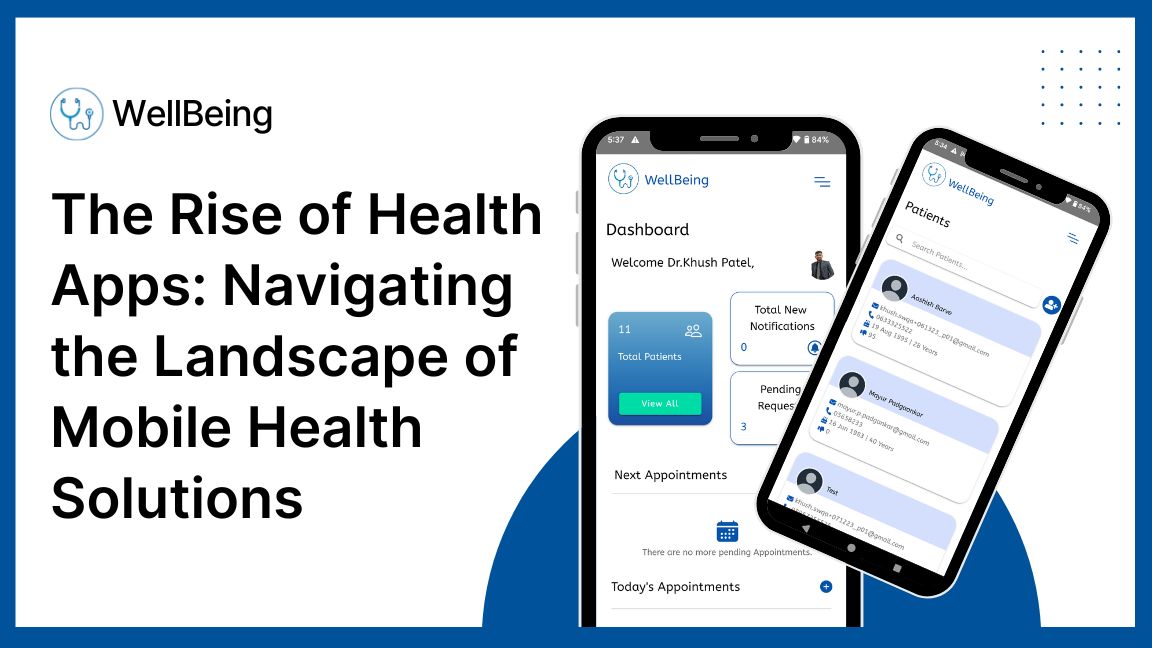In today’s fast-paced digital world, the use of health apps is on the rise, revolutionizing the way we manage our health and well-being. From tracking fitness goals to monitoring chronic conditions, mobile health solutions offer convenience, accessibility, and personalized support. In this blog, we’ll explore the growing popularity of health apps, their benefits, and how to navigate the diverse landscape of mobile health solutions.
The Evolution of Health Apps
Health apps have come a long way since the early days of simple step counters and calorie trackers. Today, there’s a wide array of mobile health solutions available, catering to various needs and preferences. These apps can help users monitor vital signs, track symptoms, manage medications, access telemedicine services, and even participate in virtual fitness classes or therapy sessions.
Benefits of Health Apps
1.Convenience: Health apps allow users to access health-related information and services anytime, anywhere, right from their smartphones or tablets.
2.Personalization: Many health apps offer personalized features and insights based on individual health goals, preferences, and medical history.
3.Empowerment: By providing users with access to valuable health data and resources, health apps empower individuals to take an active role in managing their health and making informed decisions.
4.Improved Access to Care: Telemedicine apps and virtual healthcare platforms enable users to consult with healthcare providers remotely, reducing the need for in-person visits and improving access to medical care, especially in underserved areas.
5.Health Tracking: Health apps can track various aspects of health and wellness, including physical activity, sleep patterns, nutrition, medication adherence, and chronic disease management.
Navigating the Landscape of Mobile Health Solutions
With the proliferation of health apps, it’s essential to choose wisely and ensure that the app meets your specific needs and requirements. Here are some tips for navigating the landscape of mobile health solutions:
1.Research: Take the time to research different health apps available on the market, read user reviews, and explore their features, functionalities, and ratings.
2.Consult Healthcare Providers: If you have specific health concerns or medical conditions, consult with your healthcare provider before using a health app to ensure its suitability and safety.
3.Consider Privacy and Security: Prioritize health apps that prioritize user privacy and data security, adhere to relevant regulations (such as HIPAA compliance for medical data), and provide transparent privacy policies.
4.User-Friendly Interface: Look for health apps with intuitive interfaces, easy navigation, and user-friendly design to enhance usability and engagement.
5.Integration and Compatibility: Consider whether the health app integrates with other devices or platforms you use, such as wearable fitness trackers or electronic health record systems, to streamline data sharing and management.
Conclusion: Embracing Mobile Health Solutions
As the popularity of health apps continues to soar, embracing mobile health solutions can empower individuals to take control of their health, access timely care, and make positive lifestyle changes. By navigating the diverse landscape of health apps thoughtfully and purposefully, users can harness the potential of technology to improve their well-being and lead healthier, happier lives. Whether you’re tracking fitness goals, managing chronic conditions, or seeking virtual healthcare services, there’s a health app out there to support your journey to better health and wellness.






